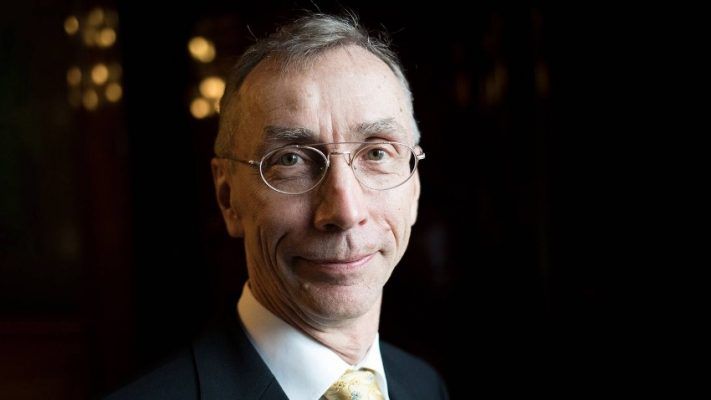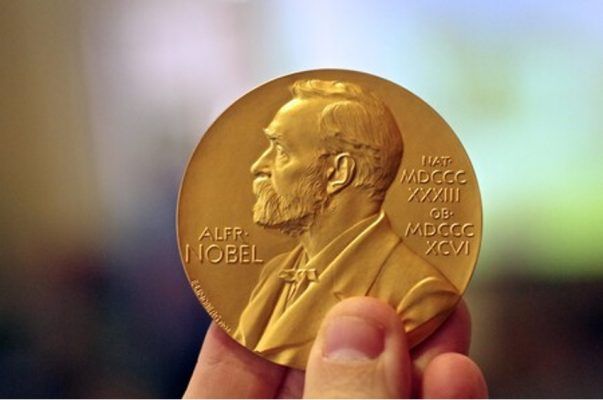The work of the most renowned scientists, artists and diplomats is rewarded every year at this time thanks to the Nobel Prizes. And the whole of society, but especially the scientific community, is always on the lookout to find out who wins such a distinguished title.
Once again this year, we congratulate ourselves for the recognition of the work of the award winners, which always carries with it a story of perseverance, effort, perseverance and discovery:
Scientists Carolyn Bertozzi, Morten Meldal and K. Barry Sharpless are the winners of the Nobel Prize in Chemistry for the development of click chemistry. And the Nobel Prize in Medicine has been awarded to Svante Päävo as the father of paleogenomics for the sequencing of the Neanderthal genome from a 40,000-year-old piece of bone.
This year we join in the congratulations with more enthusiasm than ever, if possible, because the distinguished individuals in Chemistry and Medicine have been the technological basis of some of the processes that today allow us to develop Oligofastx’s innovative drugs. For this reason, we feel that they are also part of our process and of our consortium.
An ingenious tool for building molecules: Nobel Prize in Chemistry 2022
Scientists Carolyn Bertozzi, Morten Meldal and K. Barry Sharpless are the winners of the Nobel Prize in Chemistry for the development of an “ingenious” tool that allows scientists to modify molecules in living organisms without disrupting the processes taking place inside cells, a technique that maps molecules inside cells and is being tested for targeted cancer therapies, among other uses. We are using this type of strategy at Oligofastx for the development of bioconjugates, so that we link biological molecules to RNA therapies, making them reach the right cells and tissues without impacting the functioning of the tissues.
With their work, the laureates have contributed to the improvement of cancer drugs, thanks to the “development of click chemistry and bio-orthogonal chemistry”. Their work is capable of extending the frontiers of chemistry and has a great impact on science and society – a well-deserved Nobel Prize!

Thanks to it, it is possible to create new compounds quickly and efficiently through combinations of smaller molecular fragments, facilitating the production of new drugs and materials.
“Click chemistry is used in the development of pharmaceuticals to map DNA and create materials that are more fit for purpose. Using bioorthogonal reactions, researchers have improved the targeting of cancer pharmaceuticals,” the Swedish Academy said. The award honors, the Academy added, work that tries “to make difficult processes easier. Click chemistry and bioorthogonal reactions have brought chemistry into the era of functionalism“.
Sharpless, who now receives his second Nobel Prize in Chemistry, started “to get the ball rolling,” the Academy graphically estimated, recalling that around the year he coined the concept of click chemistry, which is a simple and reliable form of chemistry, where reactions occur quickly and unwanted by-products are avoided.
Shortly thereafter, Meldal and Sharpless, independently of each other, introduced what is now the crown jewel of click chemistry: copper-catalyzed azide-alkyne cycloaddition. “This is an elegant and efficient chemical reaction that is now in widespread use. Among many other uses, it is used in the development of pharmaceuticals, to map DNA and to create materials that are more fit for purpose,” the Academy explained.
The father of the Neanderthal genome: Nobel Prize in Medicine 2022
Svante Päävo, of the Max Planck Institute for Evolutionary Anthropology, has been awarded this year for something that until now seemed impossible: deciphering Neanderthal DNA and finding out what differentiates it from present-day humans. Without looking for it, Päävo has created a new discipline in science: paleogenomics.
The Swedish biologist, a specialist in evolutionary genetics, has been recognized with the 2022 Nobel Prize in Physiology or Medicine “for his discoveries on the genomes of extinct hominids and human evolution”.

The Swedish biologist, a specialist in evolutionary genetics, has obtained this distinction “for his discoveries on the genomes of extinct hominids and human evolution”.
By revealing the genetic differences that distinguish all living humans from extinct hominids, their findings provide the basis for exploring what makes us uniquely human. All these discoveries also earned him the 2018 Princess of Asturias Award for Research.
The scientist and his team resorted to methods to isolate and analyze DNA from archaic skeletal remains using modern techniques and used laboratories with very high standards of cleanliness so that there was nothing to contaminate the samples.
Thanks to this, they were able to reconstruct the sequencing of Neanderthal DNA and also found links between their genome and that of contemporary humans, a finding that proves that homo sapiens were sexually related to Neanderthals and obtained offspring.
A history of excellence
The Nobel Prizes originated on November 27, 1895, thanks to Swedish inventor and entrepreneur Alfred Nobel. This date marks the signing of his last will and testament, with which he earmarked most of his fortune for a series of prizes celebrating the most important milestones in Physics, Chemistry, Physiology or Medicine, Literature and Peace.

In addition to the prizes, consisting of a medal, a diploma and a large sum of money, Alfred Nobel left in his will details of the institutions that would award the prizes: the Swedish Academy of Sciences, the Karolinska Institute in Stockholm, the Stockholm Academy and the Norwegian Storting. The laureates have to be proposed by their professional colleagues and the deliberation takes place in secret in the Nobel committees.
The intention of this legacy is none other than to reward those who work to improve the quality of human life. The first Nobel celebration took place in 1901, and since then more than 600 awards have been presented to over 900 organizations and individuals, including such illustrious names as Albert Einstein, Rosalind Franklin or Nadia Murad.
Congratulations once again to the award winners and thank you for the contribution to the scientific field, which will mark a before and after in many fields of study.

 Español
Español
